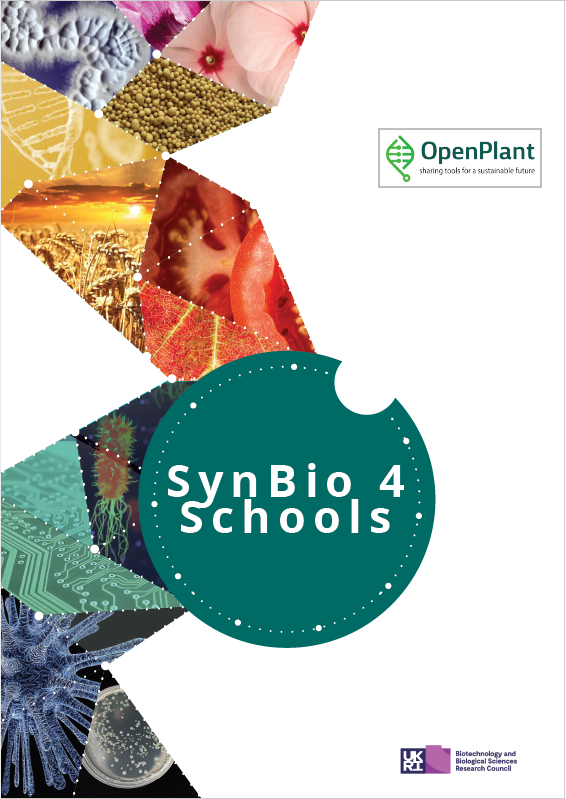Synthetic Biology is seen as an emerging and important multidisciplinary field, that is currently under-represented in the national curriculum and teaching resources. Collaborating with the Science, Art and Writing (SAW) Trust, researchers from across OpenPlant have produced SynBio 4 Schools; a free to use, comprehensive package of educational resources that focuses on teaching the principles of plant synthetic biology for GCSE and A Level students.
SynBio4 Schools
Inspiring the next generation of biological engineers.
The new resource was officially launched last month with the hosting of a live, online launch event. Teachers were invited to join the event and ask any question they might have on delivering the resources and were given the opportunity to hear more about the science behind the resource activities from some of the scientists who created them; Professor Julea Butt (University of East Anglia), Dr Nicola Patron (Earlham Institute), Dr Roger Castells Graells (University of California, LA) and Dr Shannon Woodhouse (John Innes Centre). Dr Paolo Bombelli, who also created a resource recorded a step–by-step video on how to build a plant microbial fuel cell to compliment the set.
SynBio 4 Schools is comprised of a downloadable booklet, which covers an introduction to synthetic biology and its applications, step-by-step guides to 4 practical activities for schools to conduct and a supporting teacher notes booklet which highlights the relevance of each activity to the British school science curriculum. There are also two videos; the previously mentioned ‘Build Your Own Plant Microbial Fuel Cell’ with Paolo Bombelli, and four introductory videos to each of the SynBio 4 Schools Activities.
Topics covered include; Building DNA Circuits, Generating Electricity From Plants, What Can Viruses Do For You? and Natural Product Synthesis. It is hoped that these activities will help schools engage more with synthetic biology practises, whilst inspiring the next generation of biological engineers.
All resources are available via the OpenPlant website and are free to use.


